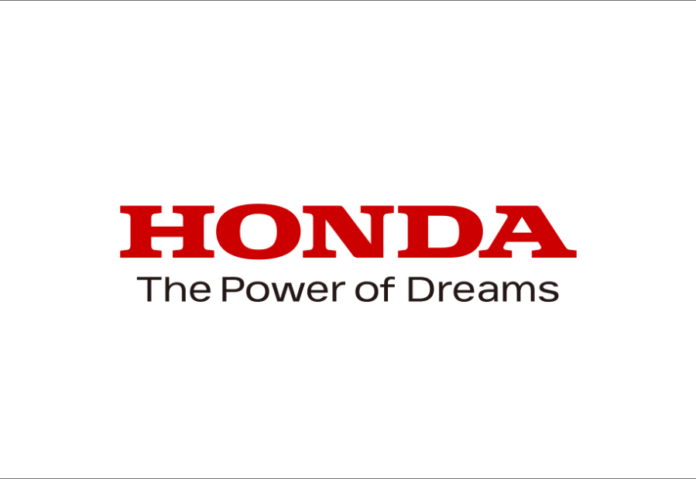With a goal of starting mass production in 2025, construction of the EV battery plant will begin in 2023
An EV battery plant for electric vehicles in the US will be built by Honda Motor and the South Korean battery maker LG Energy Solution, the two companies said Monday, as EV makers and their suppliers seek a presence in the American market.
$4.4 billion will be invested by Honda and LG Energy to build the EV battery plant.
This will be Honda’s first EV battery plant. The shift to electric vehicles is expected to move forward rapidly in the US, and Honda wants to secure a local battery supply.
With a goal of starting mass production in 2025, construction of the EV battery plant will begin in 2023.
Honda and LG Energy will establish a joint venture to produce lithium-ion batteries. Honda will take a 49 per cent stake in the operation, with LG Energy holding the remaining 51 per cent. The state of Ohio, where Honda has major operations, is seen as the most promising location.
The plan is to have an EV battery plant with an annual production capacity of up to 40 gigawatt-hours, enough to equip 700,000-800,000 typical EVs. All output will be shipped to Honda’s North American EV battery plants.
LG Energy holds the second-largest share of the global battery market, after China’s Contemporary Amperex Technology (CATL). In addition to General Motors, the company has established a joint venture to make batteries in North America with Europe’s Stellantis to increase its production capacity.
LG Energy has an annual production capacity of 30 gigawatt-hours at its EV battery plants with GM and other companies, and it appears that the EV battery plant with Honda will be on the same scale. That is enough to supply 500,000 to 600,000 standard electric vehicles.
To make its new cars either electric vehicles or fuel cell vehicles (FCVs) by 2040 is the goal of Honda. In 2024, two electric models equipped with Ultium batteries, jointly developed by GM and LG Energy, will launch in the US. Honda plans to launch an EV with a platform (chassis) in 2026 that Honda will develop independently. It is expected to be equipped with batteries produced by the automaker’s joint venture with LG Energy. Honda plans to produce about 800,000 electric vehicles in the U.S. by 2030. The company is also considering building a new production line exclusively for electric vehicles.
The U.S. is the world’s second-largest auto market, after China. It is Honda’s main market, accounting for more than 30 per cent of its global sales. On Aug. 25, California, the largest auto market in the U.S., announced regulations that will ban the sale of gasoline-powered vehicles, including hybrids, starting in 2035. The U.S. also has tax credits for electric vehicles that meet certain criteria, such as batteries produced in a certain area. These measures are expected to further boost EV pickup.
Major automakers’ basic strategy is to procure batteries near where they produce vehicles to keep costs down. In 2021, the company took a one per cent stake in CATL to make batteries easier to secure. Honda plans to use CATL batteries in 10 electric models to be launched in China by 2027. However, the U.S. wants to keep EV production domestic, so partnering with South Koreans reduces the risk of supply chain disruptions due to the U.S.-China conflict and other factors.
It will promote independent development of next-generation batteries such as all-solid-state batteries, which are safer and smaller than current mainstream liquid batteries and can extend the cruising range. Honda will invest about 43 billion yen ($310 million) in its research center in the Tochigi prefecture city of Sakura to set up a demonstration line to produce batteries. The line will start operation in the spring of 2024. The company aims to install the batteries in vehicles to be launched later in the 2020s, and will establish a mass-production system in the future.
Followed by LG Energy, SK Innovation and Samsung SDI, China’s CATL leads the auto battery market. Some U.S. and European automakers view their dependence on the Chinese battery supplier as a risk as the conflict between the U.S. and China deepens, leading to an increase in orders to South Korean companies.
By around 2025, the three South Korean companies are expected to have a total of 12 EV battery plants in operation in North America. Including the creation of a new EV battery plant in Kansas, Japan’s Panasonic is also investing heavily in the U.S.
Also read: Technology leaders need to inculcate digital minds within the organization
Do Follow: CIO News LinkedIn Account | CIO News Facebook | CIO News Youtube | CIO News Twitter
About us:
CIO News, a proprietary of Mercadeo, produces award-winning content and resources for IT leaders across any industry through print articles and recorded video interviews on topics in the technology sector such as Digital Transformation, Artificial Intelligence (AI), Machine Learning (ML), Cloud, Robotics, Cyber-security, Data, Analytics, SOC, SASE, among other technology topics






